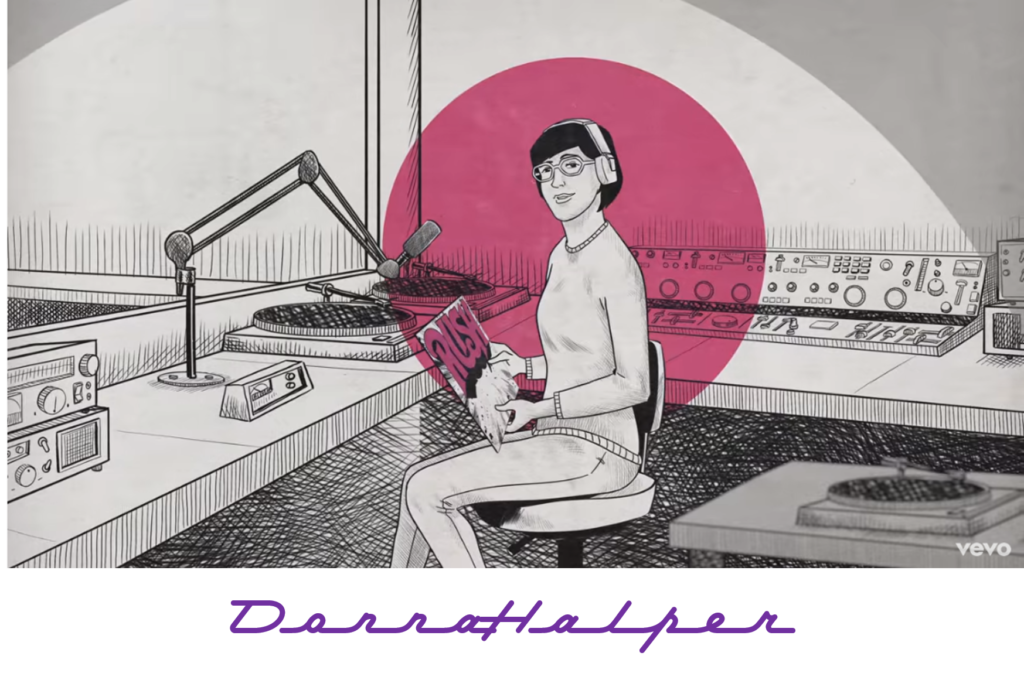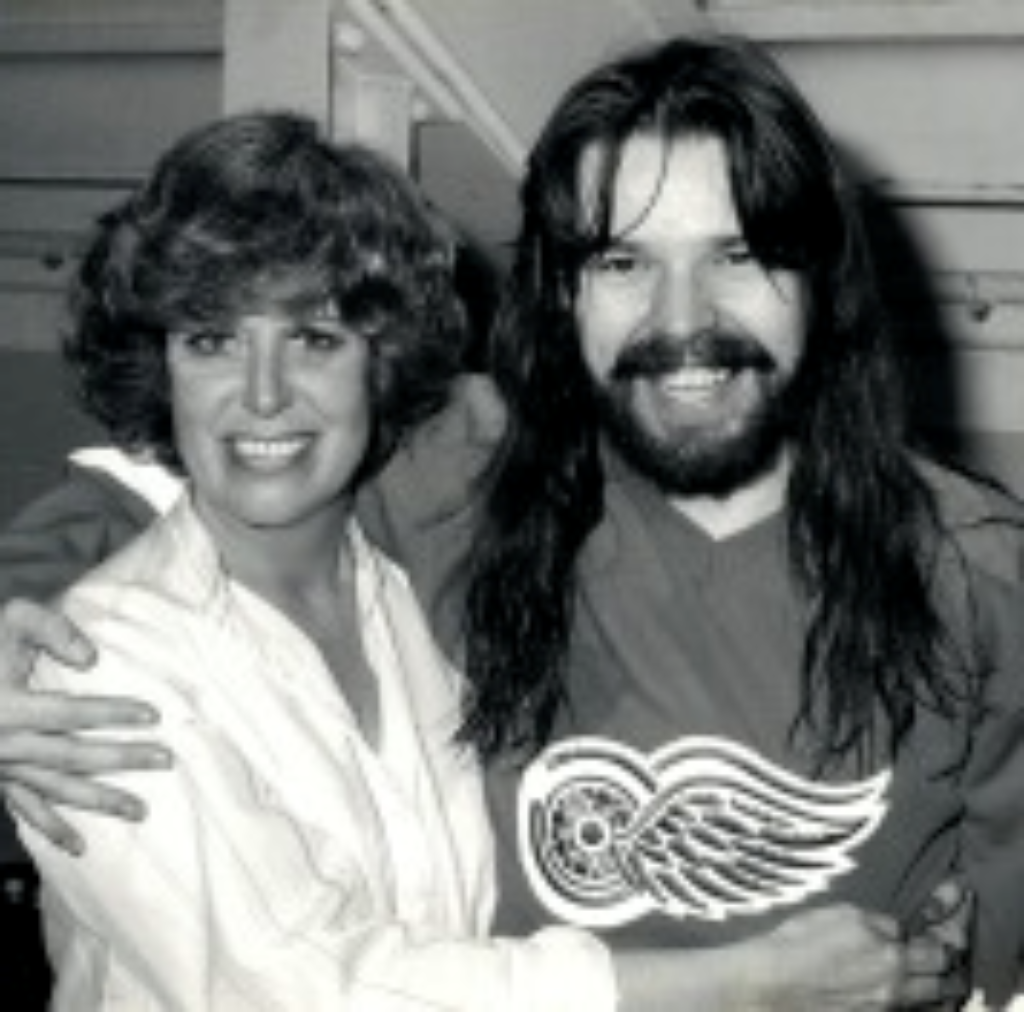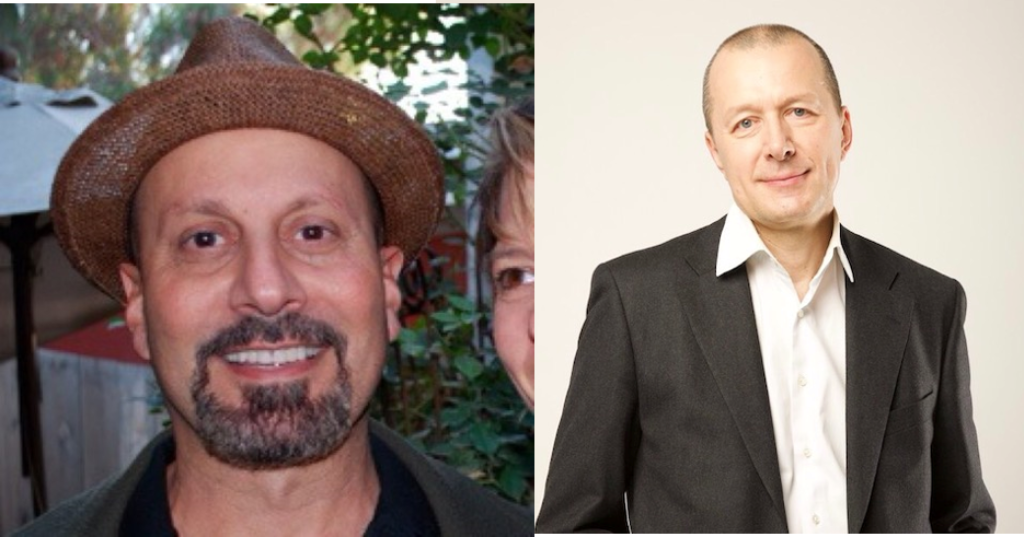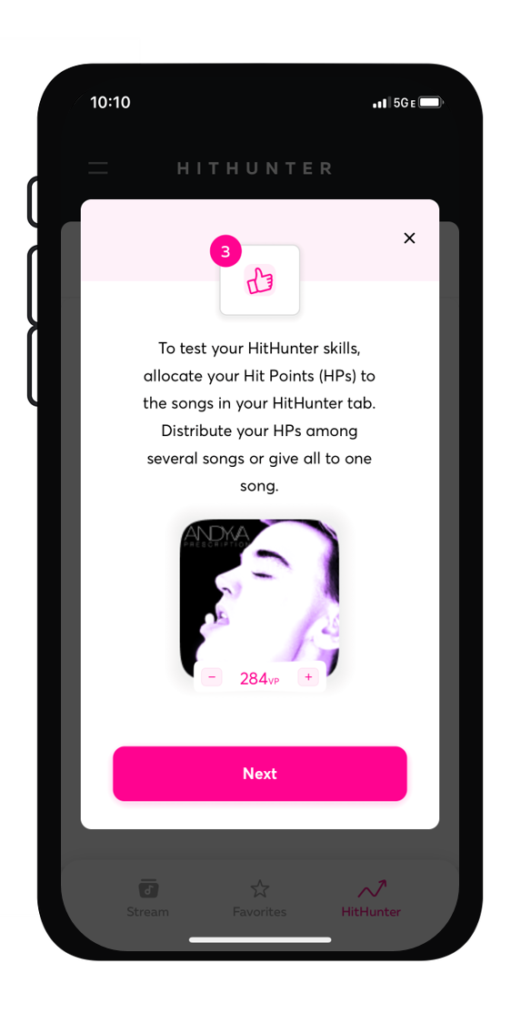
There was a time when Music Directors roamed the earth in great numbers. Some didn’t even have airshifts. Many were hired to help programmers manage the music – special and weekend programming, record label relations, and music screening and discovery.
That last part of the job description was why many got into radio in the first place – to test their skills for picking hits. And some of the best in the business prided themselves on their “great ears” – their ability to hear a band in a bar or a song on an EP from Belfast or Sydney and believe there was something there.
Some were actually pretty good, and they became nearly as legendary as the programmers they worked for. Over the years, a number have gotten credit for discovering a new artist that went onto superstardom – better known as “breaking a band.”
The truly great stations had one of these talented “music discoverers” on staff, many of whom had no desire to ascend to being a PD. They loved plowing through that stack of vinyl each week, tasked with finding the true nuggets.
Those gold records on the wall weren’t just decorative. They meant something, especially to the radio pros who had the intuition, the skill, and the knack for nailing hits.
Last year, I saluted Rush in this space on the 40th anniversary of their Permanent Waves album, and the release of an animated video tribute to their late drummer, Neil Peart, as well as some of the “radio heavies” who took a shot on that power trio from Canada.
Donna Halper was the Music Director at the influential WMMS/Cleveland back in the ’70s. She “heard” Rush the first time she placed their album on the turntable. And she went to bat for a band that many overlooked or underestimated. These were not isolated stories in those days.
the turntable. And she went to bat for a band that many overlooked or underestimated. These were not isolated stories in those days.
On FM rock stations, it was dedicated, dogged MDs like her that had an impact. At the mighty AM Top 40 stations – like WLS, WABC, KHJ, and the rest – discovery was the realm of powerful music directors – or more accurately, gatekeepers.
WAPP in New York used one of those “Homegrown” competitions to discover Jon Bongiovi, a 21 year-old kid from New Jersey. Bon Jovi’s “Runaway” became a major rock radio hit in 1983, launching an amazing career.
Perhaps the most legendary ears belonged to CKLW’s Rosalie Trombley who had the reputation for being the “toughest add.”

A young Bob Seger went so far as to write and record an ode to her, eponymously titled “Rosalie.” Part of the chorus is Bob repeating “She got the power.” It was all true.
But in modern-day radio, music discovery is a different world. Putting aside all of the criticism lobbed at radio companies today – they’re too top-down, consolidated, conservative – and let’s focus on perhaps the #1 problem: Where do you look for music that has a chance to truly break out if it makes its way on the airwaves?
Back in Donna and Rosalie’s eras, pretty much everything being released by major and even independent labels made its way into the radio station. It was all sitting at the receptionist’s desk.
Today, music directors of all platforms are tasked with finding “the next big thing.” We covered the music discovery challenge in a blog post last week, and we talked about the abundance of hi-tech sources where fledgling artists and little-known nuggets can be unearthed – streaming services, YouTube, Shazam, TikTok – and the list goes on.
One of our consultants, Mike Stern, recently introduced me to a very 2020s method of music discovery that mashes up crowd sourcing and competitive contesting in a new mobile app. And it fits snugly into our conversation about how new artists and songs can gain exposure using new tech tools.
DJooky is a new music startup, designed to identify emerging artists that have a shot to break through. Self-described as “the world’s first global online music contest,” DJooky’s discovery contests are open to any and all songwriters and performers in a contest format that runs quarterly.

Not surprisingly, the company was started by a team of music professionals, including American producer Brian Malouf (Madonna, Michael Jackson), along with another producer, former Universal Ukraine exec Andrew Dakhovsky.
The app’s discovery feature is called HitHunter, and it’s a place where the DJooky community can award points to aspiring new songs. The collective ears of actual music listeners is the feature that sets the search function apart.
Like so many other web-based applications these days (think Peloton) HitHunter has a competitive angle as well. There are leader boards, pitting would-be A&R professionals against each other.
And the cash prizes for having “great ears” can total up to $1,000 – not quite enough to become a full-time Music Director. But you can see the day when contest winners will pitch themselves to Spotify, Pandora, or broadcast radio based on their hit-picking abilities.
 Obviously, a major motivator for the development of DJooky – and HitHunter, in particular – has been the hard road so many bubbling-under artists have endured this past year, not to mention the millions of music fans unable to attend shows, concerts, and clubs due to COVID.
Obviously, a major motivator for the development of DJooky – and HitHunter, in particular – has been the hard road so many bubbling-under artists have endured this past year, not to mention the millions of music fans unable to attend shows, concerts, and clubs due to COVID.
As Dakhovsky explained to Music Business Worldwide’s Murray Stassen, “(HitHunter) extends the principle of music recommendation by involving our community in the curation process.”
And Malouf adds, “Now HitHunter gives the non-musicians in our community a fun and unique opportunity to showcase their talent spotting prowess and more importantly, become recognized for it in the form of leaderboard and prizes.”
In other words, just as we have YouTube and TikTok stars, as well as thousands of online “influencers,” you can envision the day when the very best hit predictors will be compensated for their great ears. A reality TV show can’t be far behind either.
In the meantime, analog music discovery is alive and well, albeit an increasing rarity in the broadcast radio industry. Relying heavily on young “shredders” on TikTok, KLOS PD Keith Cunningham has spent the last year or so looking for local talent in the Los Angeles environs.
Jasmine Star is a 17 year-old Southern California phenom who Keith discovered. One of five finalists in a global guitar competition, Keith contacted Jasmine’s dad, booked an interview, and brought her into the studio to cut a few short videos.
Now, “Jasmine Jams” has seven “editions.” For KLOS, not only is there the joy, satisfaction, and pride of discovery, but some of Jasmine’s video’s have racked up more than a million views. That social media component didn’t exist back when Donna Halper found Rush or WAPP bumped into Jon Bon Jovi.
You can watch (and listen to) all of Jasmine’s KLOS videos here.
Radio has come a long way since the 1970s when Lee Abrams had his local music directors stuffing record store bags with little cards.
Or has it?
- What To Do If Your Radio Station Goes Through A Midlife Crisis - April 25, 2025
- A 2020 Lesson?It Could All Be Gone In A Flash - April 24, 2025
- How AI Can Give Radio Personalities More…PERSONALITY - April 23, 2025




I believe the greatest challenge today’s music directors face is the sheer quantity of music out there (in every genre). Half a century ago one could sip from the spring and be familiar with new releases across the entire popular-music spectrum. Now it’s Niagara Falls, even within single genres. I doff my hat to anyone who can stay on top of it all–and there are many who do. They’re experts.
Given the vast quantity, isn’t there a more fundamental question though: What is the function of a “hit”? Presumably it’s a track/tune the listener wants to hear again and again and again (even buy!). But with so much out there, and so much excellent curation by those very experts, I can dip into their streams at will to enjoy nonstop material that is totally new to me–never heard before and perhaps never again, yet my ears are happy. If I love it but know I’ll probably love the next one after it too, there is no need for me to clammer for the previous one again, let alone buy it. Perhaps the concept of “hit” is gradually becoming irrelevant. It has for me.
Interesting interpretation of what makes a great song, John. And I think you just gave us an interesting definition of how TSL actually works – where the listener stays tuned in, and may not even realize it’s happening.
And yes, the firehose (Niagara Falls) analogy is a good one. That’s how I see it, too. Daunting in its complexity and the multitude of truly good stuff out there. Thanks for checking in.
Fred, frankly I don’t believe that music discovery is our job. Simply put, our job is to reflect audience taste, and generate listening, in order to sell advertising. Simple. I understand that some formats use new music as an image, but frankly, haven’t we always been interested in audience perception and consumption? That was the point of the cards in the bags, right?
I don’t need to break new songs. I need to discover what new songs are resonating with the early adopters and feature them. Here, we do that with in depth analysis of streaming trends (Bridge Ratings). I see millions of streams (consumption) daily. Ears? No, eyes. The consumer tells me what’s hot with their consumption. Two good recent examples from Alternative are Mother Mother – Hayride, and Carolesdaughter – Violent. Both are just getting started on the charts and radio, but are being consumed top 20 by consumers. When I see that kind of a spike, I listen. The consumer is almost always correct. They pick the hits. I just play them. Everything else is just self flagellation.
Rick, you make some great points, and I love your perspective. Ultimately, the best MDs (or PDs) were anticipating what their audiences would love – or as you say, already loving by virtue of their streaming patterns. Thanks for putting a 2020 spin on the topic.
I think its a combination of ears and eyes. Yes, up to a point, Rick is right. Follow who is streaming what and you have a much better idea on a song than watching how a track “was doing” at the P3 stations that added it.
The problem with being 100% data driven is some things just don’t fit, even if the data says they do. I’ve never been a programmer, but here are some non music examples. Some TV creative that I was considering tested better than any of the others under consideration. When I watched it, I didn’t “get it”. Didn’t understand what the message was supposed to be, but the numbers said go with it. I did, and the cume response was very disappointing.
A sales candidate was under consideration and his profile from the research company we used was off the charts – they said one of the highest testing for the things we were looking for that they had ever seen. Problem was, this person seemed to say the wrong thing and alienate everyone within his field of vision. In this case, we discussed whether this person would ever get far enough with most prospects to work their sales magic. We decided no, politely told him we were moving in a different direction and he called the Regional VP and President of the company to complain about our selection process. The number said, emphatically, go, but our guts said stop. Good thing we trusted our guts. There are times that the data isn’t sufficient and can lead you wrong. What’s worse, a really bad song or the absence of a good one?
More important is when each company has one person programming each format for their entire footprint, new music discovery is a non starter.
Great programming – whether it was in 1981 (an era I am VERY familiar with) or 2021 – is a combination of science and gut. It’s why networks and film producers never really know with any degree of certainty whether a new show or movie is really going to work. Pre-testing is great, but there are lots of crazy variables at play when you’re dealing with real people. Thanks for reminding us of that, Bob.
I think your reply to Bob above, Fred, sums up the whole conversation best. It’s “research” plus “gut” plus–what unfortunately no one has thus far figured out–the undefinable “something” that makes it all work. Best you can do is do the math and hope the answer is right more often than wrong.
That said, if radio had more Keith Cunninghams discovering more Jasmine Stars, the number of correct answers would soar even as the number of people finding their way back to their radio dials would likewise soar.
Dave, I always love comments that agree with me. 🙂
I’ve written before about that moment at WRIF when “Beat It” (w/ Eddie Van Halen, of course) was killing it EVERYWHERE – MTV, Top 40, single and album sales, you name it. In today’s world, it would be #1 on YouTube, Spotify, and the soundtrack for thousands of TikTok videos.
And I didn’t play it, not because it wasn’t a great song or that it wasn’t popular. I didn’t think it was right for the radio station at that moment in time. There were a handful of others (Rick Springfield comes to mind) that also met the popularity requirements, but just never felt right on the station.
None of that makes these decisions “right,” but that’s what a PD does – makes those tough calls about songs that are truly additive to the station. Or not.
As for Keith, kudos to him. He believes in the power of that Southern California vibe, as well as kids who pick up those “axes” and shred away. It helps keep KLOS contemporary and connected to its community.
Thanks Fred, for “Jasmine Jams!” What a find! A love of music is a blessing and she shares her love better than most.
She’s great, isn’t she? And there are many more out there paying homage to the greatest rock ever made. Thanks, Lee.
God I love being a Music Director. Much, much more than being a PD. But, being a PD means my career isn’t dependent on the PD not fucking everything up. I went through THAT enough times to want ALL the responsibility.
I was MD at KRQR in San Francisco before I got into AAA Programming. But I had a lot more leeway to actually add artists I was excited about in smaller markets. I’m not known as someone who broke a particular artist. That credit usually goes to the bigger market guys. But I was playing Tom Petty as soon as the record came out, whereas it wasn’t a hit elsewhere in the states for another year of so. I was early on Heart, The Pretenders, The Talking Heads, Elvis Costello, Bryan Adams, Gun & Roses, Metallica (Lars actually called and thanked me), Brett Dennen, Adele, and so many more.
There’s nothing like finding something that moves me, sharing it, and seeing it blow up.
Now that I’m programming Classic Hits I miss new music discovery, even though the game has changed so much since 1976.
It’s been a great career, but those MD days were to most fun.
Zeb, thanks for this. I think you speak for a lot of people who served as Music Director in the past. And I loved this line from your comment:
“There’s nothing like finding something that moves me, sharing it, and seeing it blow up.”
Thanks for adding some “real life” to my post.